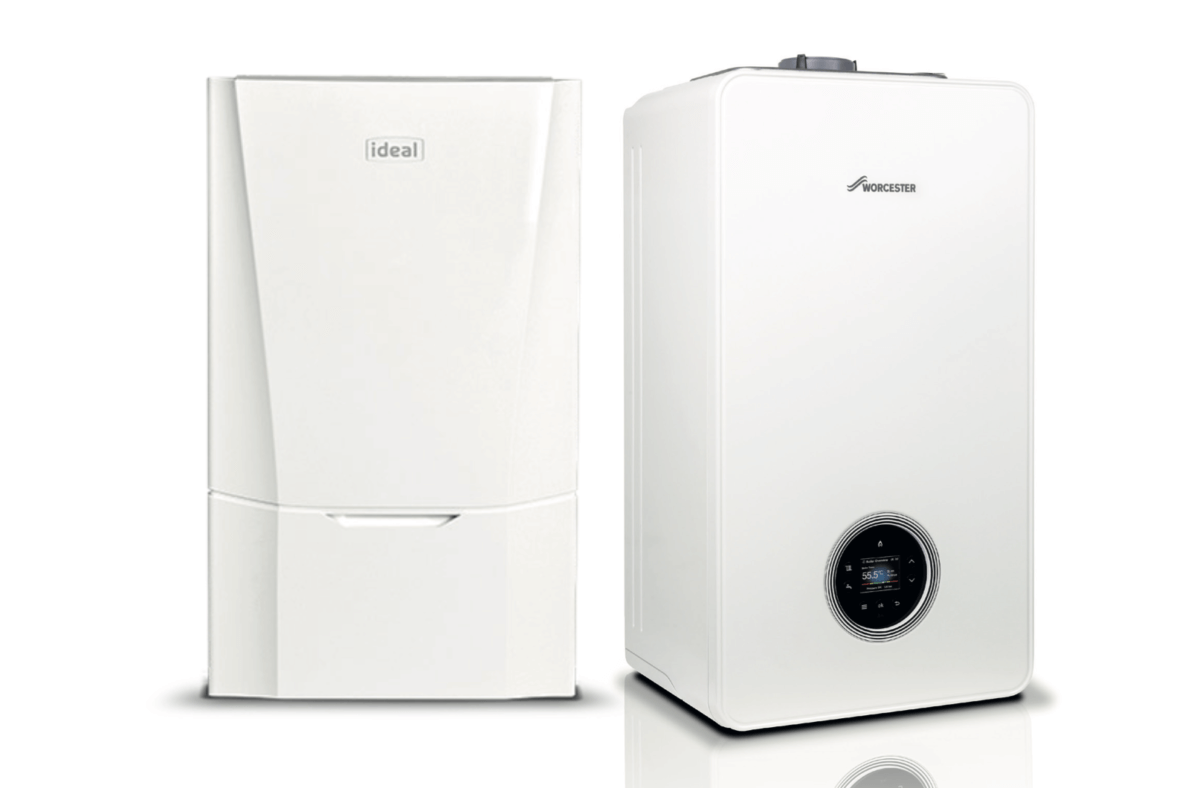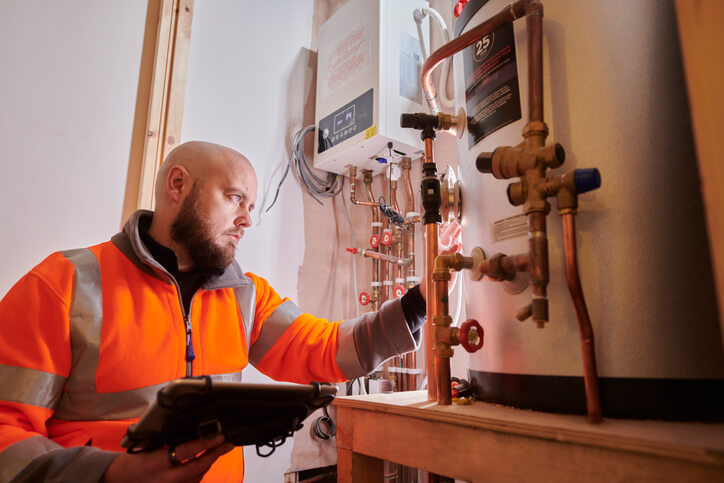When it’s time to choose a new boiler, the decision often comes down to two of the most trusted brands in the UK: Ideal and Worcester Bosch. Both manufacturers have earned reputations for quality, reliability, and energy efficiency. However, each has its unique advantages, and the right choice depends on your home’s needs, budget, and preferences. Here, we break down the top reasons to choose an Ideal boiler versus a Worcester Bosch boiler to help you make an informed decision.
1. Reliability and Build Quality
Worcester Bosch has been a market leader for decades and is known for its exceptional build quality and longevity. Its boilers are built to high standards, often making them the go-to choice for homeowners seeking a premium, reliable solution. Worcester Bosch boilers have won Which? Best Buy awards multiple times, a testament to their reliability and durability.
Ideal boilers, while relatively newer to the premium market, have quickly proven themselves with solid build quality and reliability. In recent years, Ideal has focused on delivering high-quality products with robust performance, backed by their own Which? Best Buy awards. They provide dependable options without the premium price tag associated with Worcester Bosch.
Verdict: If you’re looking for a long-established reputation and award-winning reliability, Worcester Bosch may be the better choice. However, Ideal offers a solid, reliable alternative at a lower price point, making it ideal for budget-conscious homeowners.
2. Affordability
Ideal boilers are generally more affordable than Worcester Bosch models. Ideal has positioned itself as a more budget-friendly option, making it an attractive choice for homeowners who want a high-quality boiler without a hefty price tag. Ideal’s models, like the Exclusive2 and Logic Plus ranges, offer excellent value for money with efficient performance and impressive warranties.
Worcester Bosch boilers, while more expensive, reflect their higher build quality and feature-rich design. For many homeowners, the extra investment is justified by the boiler’s longevity, premium features, and after-sales service.
Verdict: Ideal wins on affordability. If you’re looking to save money while still getting a reliable boiler with a good warranty, Ideal is a fantastic option. For those who prioritize longevity and premium features, Worcester Bosch may be worth the additional investment.
3. Warranty and Customer Support
Worcester Bosch boilers typically come with warranties ranging from 5 to 12 years, depending on the model and installer accreditation. Worcester Bosch’s warranties are known for being comprehensive and backed by a highly rated customer service team, ensuring peace of mind and prompt support if issues arise.
Ideal also offers competitive warranties, with some models, like the Ideal Vogue Max, providing up to 12 years of coverage when installed by an Ideal-accredited installer. Ideal has made significant strides in after-sales service and support, making it an increasingly attractive choice for homeowners.
Verdict: Both brands offer excellent warranties and support, but Worcester Bosch has a slight edge due to its long-standing reputation for customer service. However, Ideal provides strong warranty options, especially for budget-conscious customers.
4. Energy Efficiency
Both Ideal and Worcester Bosch have invested heavily in energy-efficient technologies. Many of their models come with efficiency ratings above 90%, which helps reduce energy bills and environmental impact.
Worcester Bosch boilers, such as the Greenstar range, often include advanced features like weather compensation, which adjusts heating output based on outdoor temperatures, and the QuickTap water-saving function. These features can make Worcester Bosch boilers even more efficient in certain setups.
Ideal boilers, like the Logic and Vogue ranges, are also highly efficient, with Energy-related Products (ErP) ratings of A for heating and hot water. While they may lack some of the advanced energy-saving features found in Worcester Bosch models, they still deliver excellent efficiency for everyday needs.
Verdict: Worcester Bosch slightly outperforms in terms of energy-saving features, but Ideal offers high efficiency at a lower price point, making it a competitive choice for those looking to balance performance with cost.
5. Smart Control Compatibility
With smart home technology becoming increasingly popular, the ability to integrate a boiler with smart controls is a valuable feature.
Worcester Bosch has its own range of smart controls, like the EasyControl system, which allows homeowners to control heating from their smartphones. Many Worcester Bosch boilers are also compatible with third-party smart thermostats, including Nest and Hive.
Ideal boilers can also be paired with smart thermostats like Nest, Hive, and other popular options, providing flexible control over heating. While Ideal doesn’t have its own proprietary smart control system, its boilers are compatible with a wide range of third-party options.
Verdict: Worcester Bosch offers more in-house smart control options, which can be an advantage for homeowners looking for a seamless integration. However, Ideal provides strong compatibility with major third-party devices, making it a flexible choice for smart home enthusiasts.
6. Noise Levels
When choosing a boiler, noise can be an important factor, especially if the boiler is located near living spaces. Both brands manufacture relatively quiet boilers, but there are slight differences.
Worcester Bosch boilers are known for their quiet operation, with many models specifically designed for low-noise performance. This can be especially valuable in open-plan homes or apartments.
Ideal boilers are generally quiet as well, particularly in the Logic and Vogue ranges, which include features to reduce operational noise. However, some homeowners report that Worcester Bosch boilers are slightly quieter in practice.
Verdict: Worcester Bosch has a slight edge for quiet operation, making it ideal for noise-sensitive areas. Ideal still performs well, especially with newer models, but Worcester Bosch may be preferable if noise is a top concern.
Final Thoughts: Which Should You Choose?
Both Ideal and Worcester Bosch offer outstanding boilers with unique benefits. Here’s a quick summary to help you decide:
- Choose Ideal if you’re looking for an affordable, reliable boiler with strong warranties, energy efficiency, and flexible smart control compatibility. Ideal boilers are an excellent choice for budget-conscious homeowners who still want a high-quality, dependable heating system.
- Choose Worcester Bosch if you’re willing to invest a bit more for premium build quality, advanced energy-saving features, and a quieter operation. Worcester Bosch’s long-standing reputation and strong customer support make it a top choice for those seeking a high-end boiler with all the latest features.
Ultimately, both brands provide excellent heating solutions, and the best choice depends on your specific needs, budget, and home requirements. Whichever you choose, you can feel confident that both Ideal and Worcester Bosch will provide reliable, efficient, and effective heating for years to come.
For more advice on choosing the perfect boiler for your home, feel free to contact our team at DTS Plumbing & Heating – we’re here to help!



